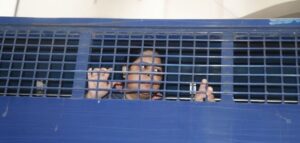Washington Post 18 May 2021
Islam is known for reporting on corruption involving the Ministry of Health and others. Several of her recent stories have drawn attention to the millions of dollars spent procuring health equipment to deal with the coronavirus pandemic.
Islam was then handed over to police and faces charges under the Penal Code and Official Secrets Act for alleged theft and photographing of sensitive state documents, said Harun-or-Rashid, an additional deputy commissioner of Dhaka Metropolitan Police.
The charges carry a possible death penalty, the New York-based Committee to Protect Journalists said in a statement.
Maidul Islam Prodhan, a spokesman for the health ministry, said Islam took photos of “important” documents.
“She was also taking away some documents. An additional secretary and a policeman challenged her at the time. Later, the policewomen were called in,” he said.
On Tuesday, she appeared in court, where police sought to hold her for interrogation for five days and defense lawyers sought her release on bail. The magistrate rejected both appeals and sent her to jail until her next court appearance on Thursday, defense lawyer Ehsanul Haque Shomaji said.
Journalists groups in Bangladesh and the CPJ demanded her release.
“We are deeply alarmed that Bangladesh officials detained a journalist and filed a complaint under a draconian colonial-era law that carries ridiculously harsh penalties,” said Aliya Iftikhar, CPJ’s senior Asia researcher.
“Bangladesh police and authorities should recognize that Rozina Islam is a journalist whose work is a public service and should immediately drop the case against her and allow her to go free.”
Earlier this month, the New York-based group Human Rights Watch said Bangladeshi journalists are risking arbitrary arrest, torture and harassment under a widely used Digital Security Act.
It said at least 247 journalists were reportedly subjected to attacks, harassment and intimidation by state officials and others affiliated with the government in 2020. More than 900 cases were filed under the Digital Security Act, with nearly 1,000 people charged and 353 detained, many of them journalists, it said.










